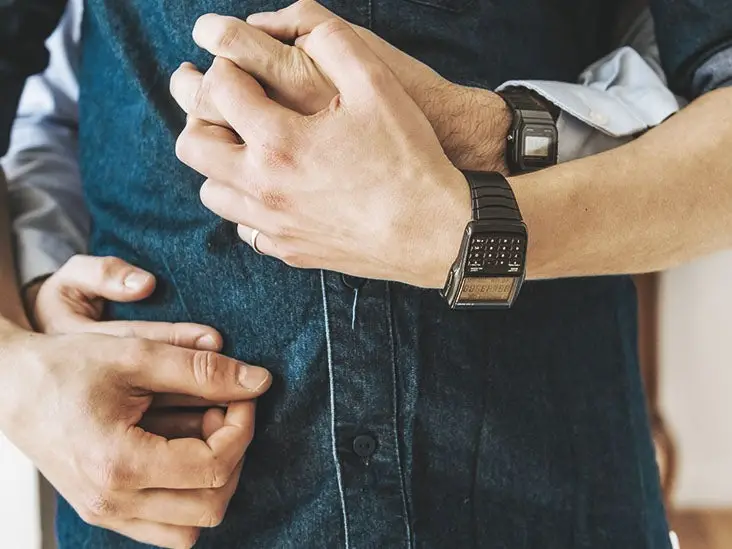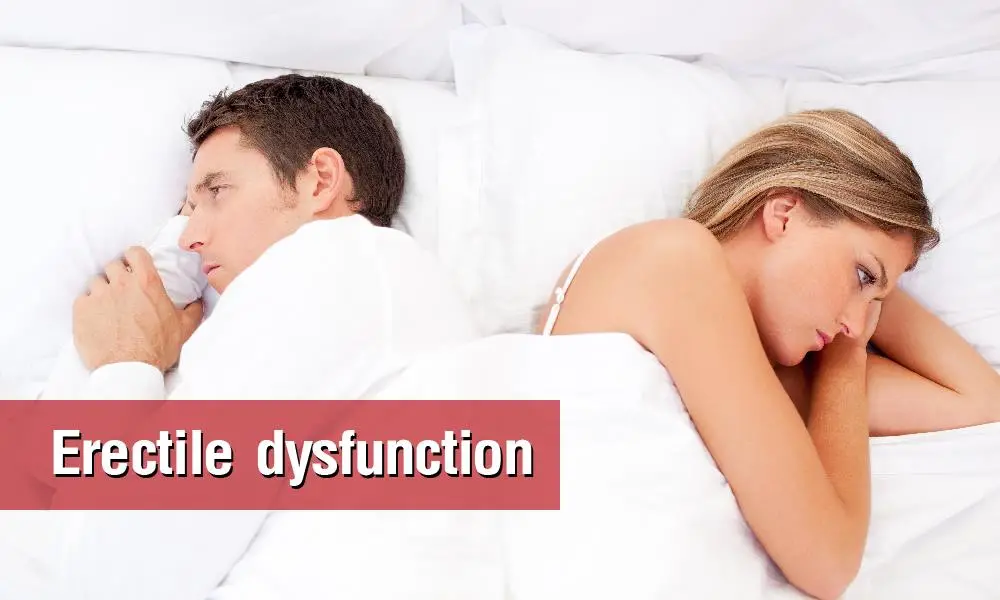Understanding the Connection Between Anxiety and Erectile Dysfunction

Anxiety and erectile dysfunction are two common health issues that affect many individuals, particularly men. Both can have a significant impact on one’s physical and emotional well-being, and they often go hand in hand. While anxiety is a mental health disorder characterized by excessive worry and fear, erectile dysfunction is a condition where a man struggles to achieve or maintain an erection.
In this blog post, we will delve deeper into the connection between anxiety and erectile dysfunction, their causes, symptoms, diagnosing methods, treatment options, and ways to manage and prevent them.
Understanding Anxiety and Erectile Dysfunction
What is Anxiety?
Anxiety is a natural reaction to stress and can be beneficial in certain situations, such as motivating us to perform better in a job interview or complete a task on time. However, when anxiety becomes excessive and uncontrollable, it can interfere with daily life and significantly impact one’s mental and physical health. According to the National Institute of Mental Health, anxiety disorders affect approximately 19% of adults in the United States every year.
Some common types of anxiety disorders include generalized anxiety disorder, panic disorder, social anxiety disorder, and phobias. The symptoms of anxiety can range from mild to severe and may include excessive worrying, restlessness, fatigue, trouble concentrating, irritability, muscle tension, and sleep disturbances.
What is Erectile Dysfunction?
Erectile dysfunction (ED) is a condition where a man has difficulty achieving or maintaining an erection sufficient for sexual activity. It is a common problem, affecting around 30 million men in the United States alone. ED can occur at any age, but it is more prevalent in men over 40 years old. It can be caused by various physical and psychological factors, such as diabetes, heart disease, obesity, stress, relationship problems, and performance anxiety.
Causes of Anxiety and Erectile Dysfunction
Causes of Anxiety
Anxiety disorders can be caused by a combination of factors, including genetics, brain chemistry, and life experiences. Some individuals may be more prone to anxiety due to their genetic makeup, while others may develop it as a result of traumatic events or ongoing stress. Additionally, underlying medical conditions, such as thyroid disorders or heart disease, can also contribute to the development of anxiety.
Causes of Erectile Dysfunction
Erectile dysfunction can have both physical and psychological causes. Physical causes include health conditions that affect blood flow, nerve function, and hormone levels, such as diabetes, heart disease, high blood pressure, and obesity. Lifestyle factors, such as smoking, alcohol use, and drug abuse, can also contribute to ED. On the other hand, psychological causes of ED may include stress, anxiety, depression, and relationship problems.
Symptoms of Anxiety and Erectile Dysfunction
Symptoms of Anxiety
The symptoms of anxiety may vary from person to person and depend on the type of anxiety disorder. However, some common symptoms include:
- Excessive worrying about everyday events and situations
- Difficulty controlling worry
- Restlessness and feeling on edge
- Fatigue and trouble sleeping
- Muscle tension and irritability
- Gastrointestinal issues, such as stomachaches or diarrhea
Symptoms of Erectile Dysfunction
The symptoms of erectile dysfunction can include:
- Difficulty achieving an erection
- Trouble maintaining an erection during sexual activity
- Reduced sexual desire
- Premature ejaculation
- Delayed ejaculation
- Inability to achieve orgasm
Diagnosing Anxiety and Erectile Dysfunction
Diagnosing Anxiety
To diagnose an anxiety disorder, a healthcare professional will perform a comprehensive evaluation, which may involve a physical exam, a review of your medical history, and psychological assessments. They may also use diagnostic criteria, such as those outlined in the Diagnostic and Statistical Manual of Mental Disorders (DSM-5).
Diagnosing Erectile Dysfunction
The diagnosis of erectile dysfunction typically involves a physical exam, a review of medical history, and a discussion of symptoms. Your doctor may also perform blood tests to check for underlying health conditions that could be causing ED. In some cases, specialized tests, such as an ultrasound or psychological evaluation, may be necessary to determine the cause of ED.
Treatment Options for Anxiety and Erectile Dysfunction
Treatment for Anxiety
There are various treatment options available for anxiety, including medication, therapy, and lifestyle changes. Medications, such as selective serotonin reuptake inhibitors (SSRIs) and serotonin-norepinephrine reuptake inhibitors (SNRIs), can help to reduce symptoms of anxiety. Cognitive-behavioral therapy (CBT) is a type of talk therapy that can help individuals learn how to manage their anxiety. Additionally, making lifestyle changes, such as getting regular exercise, practicing relaxation techniques, and avoiding alcohol and drugs, can also be beneficial in managing anxiety.
Treatment for Erectile Dysfunction
The treatment for erectile dysfunction will depend on the underlying cause. In cases where physical health conditions are contributing to ED, treating the underlying condition may improve erectile function. Lifestyle changes, such as quitting smoking, reducing alcohol consumption, and maintaining a healthy weight, can also help to manage ED. Additionally, medication, such as Viagra or Cialis, may be prescribed to improve erectile function. In some cases, penile implants or surgery may be recommended.
Managing Anxiety and Erectile Dysfunction
Managing Anxiety
Managing anxiety can involve a combination of strategies, including self-care, therapy, and support from loved ones. Some effective ways to manage anxiety include:
- Practicing relaxation techniques, such as deep breathing, meditation, and yoga
- Getting regular exercise
- Prioritizing self-care, such as getting enough sleep, eating a balanced diet, and engaging in activities you enjoy
- Seeking support from loved ones or joining a support group
- Taking prescribed medication as directed by your healthcare provider
Managing Erectile Dysfunction
Managing erectile dysfunction may involve a combination of lifestyle changes, medication, and therapy. Some ways to manage ED include:
- Making lifestyle changes, such as quitting smoking, reducing alcohol consumption, and maintaining a healthy weight
- Taking medication, as prescribed by your doctor
- Engaging in sexual therapy or couples counseling to address any underlying psychological factors contributing to ED
- Using assistive devices, such as a vacuum pump or penile implants, to achieve an erection
Effective Treatment for Erectile Dysfunction in Your 20s
Preventing Anxiety and Erectile Dysfunction
Preventing Anxiety
While it may not be possible to completely prevent anxiety, there are steps you can take to reduce your risk of developing an anxiety disorder. These include:
- Getting regular exercise
- Practicing relaxation techniques
- Limiting caffeine and alcohol intake
- Getting enough sleep
- Seeking professional help if you experience persistent feelings of anxiety or worry
Preventing Erectile Dysfunction
To prevent erectile dysfunction, it is essential to maintain good overall health. This includes:
- Eating a balanced diet
- Engaging in regular physical activity
- Avoiding tobacco and excessive alcohol use
- Managing underlying health conditions, such as diabetes or high blood pressure
- Communicating openly with your partner about any sexual concerns or difficulties
The Connection Between Type 2 Diabetes and Erectile Dysfunction
The Link Between Anxiety and Erectile Dysfunction
Anxiety and erectile dysfunction are often linked, and one can exacerbate the other. For example, anxiety can cause stress and worry, which may interfere with a man’s ability to achieve an erection. On the other hand, struggling with erectile dysfunction can lead to feelings of inadequacy, performance anxiety, and low self-esteem, all of which can trigger or worsen anxiety. Additionally, some medications used to treat anxiety, such as SSRIs, can have side effects that contribute to erectile dysfunction.
Anxiety and Erectile Dysfunction in Men
Anxiety and erectile dysfunction are more prevalent in men than in women. According to the American Psychological Association, men are less likely to seek help for mental health issues, including anxiety, due to societal expectations of masculinity. This can lead to men suffering in silence and not getting the necessary treatment for their anxiety, which can worsen their symptoms and contribute to ED.
Anxiety and Erectile Dysfunction in Relationships
The link between anxiety and erectile dysfunction can also have a significant impact on relationships. When one partner is struggling with anxiety or ED, it can cause strain and tension within the relationship. The fear of not being able to perform sexually or satisfy their partner can also lead to feelings of shame, guilt, and resentment. Open communication and support from both partners are crucial in managing these issues and maintaining a healthy and fulfilling relationship.
Conclusion
Anxiety and erectile dysfunction are two common health issues that often coexist. While anxiety is a mental health disorder characterized by excessive worry and fear, erectile dysfunction is a condition where a man struggles to achieve or maintain an erection. Both can have a significant impact on one’s physical and emotional well-being and can be caused by various factors, including genetics, lifestyle, and underlying health conditions.
However, there are effective treatment options and ways to manage and prevent anxiety and erectile dysfunction. Seeking professional help and having open communication with loved ones are essential in addressing these issues and improving overall well-being. Remember, you are not alone, and there is no shame in seeking help for your mental and sexual health.












